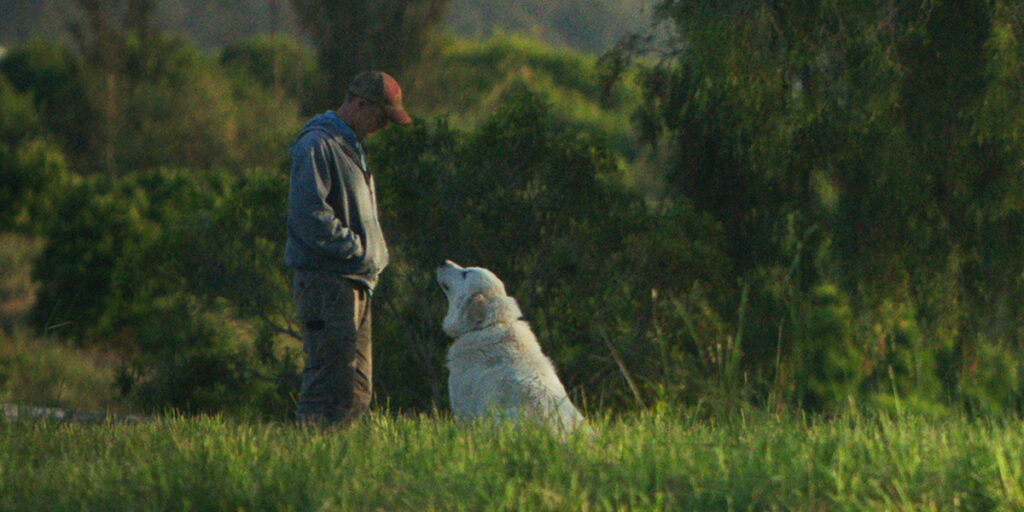The sad thing about a festival with over 200 new movies is that I often have to prioritize fiction films over non-fiction ones, with the exception of notable directors like Werner Herzog, Errol Morris, and Michael Moore, all of whom have films here that I’ll be covering later. I wish I could see more small documentaries from new filmmakers because there’s often joy to be found in these personal passion projects that are clearly designed to express a viewpoint or make a statement more than a profit. Two such films at TIFF this year that I did get to see are such crowdpleasers that they could break out of this niche mold and follow hit docs like “RBG” and “Won’t You Be My Neighbor?” into the mainstream.
The first is a, well, as cheesy as it sounds, almost inspirational documentary that is nearly impossible to dislike. It’s about two people who didn’t just talk about what they’d love to do with their lives, they took that leap and uprooted everything to chase a dream. In doing so, they learned something about not just themselves but the entirety of our planet—its cycles, its symbiosis, its ability to sustain. It’s called “The Biggest Little Farm,” and it made a big splash at Telluride, where the natural setting surely impacted the mood of the screening, but I suspect it will get waves of applause in Toronto as well, and beyond.
I have to admit to something of a personal connection to the film in that the “inciting incident,” if you will, for John and Molly Chester is one to which I can deeply relate. Like them, my life was forever changed by a rescue dog. Mine is named Layla, theirs was named Todd, a gorgeous animal who happened to have the same issue as my pup—severe separation anxiety. Every time the Chesters left the apartment, Todd would bark all day. Shirts, sprays, training—none of it worked (I can definitely feel this pain). They were forced to leave their urban dwelling, not long after getting married, and they decided to do something relatively crazy—Molly had always talked about running their own farm.
And so they founded Apricot Lane Farm in California, promising to grow enough fruits and vegetables to sustain a small grocery store. If you think this sounds like an amazing amount of work, you’re not wrong, and Chester’s film (John also gets director’s credit as he filmed this entire journey and assembled the movie) carefully moves through the cycles of such an endeavor. It always starts with the grandest ideas and the utmost optimism, but the real world invades, sometimes even in the form of coyotes. We spend years with the Chesters, watching their farm go through significant highs and lows—in doing so, “The Biggest Little Farm” becomes a remarkably reassuring film about human and mother nature. Highs won’t last forever, but neither will lows. The world that the Chesters creates becomes incredibly self-sustaining. What are first possible pitfalls become boons, and vice versa. Everything is cyclical. It’s something that could apply to life on an ambitious farm, or probably your life too.

Less hopeful by a mile but also filled with some truly memorable people is Billy Corben’s cuckoo-crazy “Screwball,” a breakdown of the steroid scandal from the vantage point of the Florida drug addicts and meatheads who did the actual dealing. Corben’s funny doc is filled with characters straight out of central casting. I kept thinking who could play Tony Bosch and Porter Fischer in the “I, Tonya”-esque version of this story that really should win somebody an Oscar.
The director of “Cocaine Cowboys” allows Bosch and Fischer to do most of the talking through “Screwball,” and they hold nothing back in detailing how they became involved in one of the decade’s most notable sports scandals. If you haven’t heard of Bosch or Biogenesis, you are in for a treat. Playing out like a Carl Hiaasen novel, this is the story of how a guy who maybe got a medical degree in Belize forever changed the game of baseball. Bosch was the self-proclaimed specialist who started a PED craze that included clients like Manny Ramirez, Ryan Braun, and Alex Rodriguez, and comes off like an absolute lunatic in “Screwball,” watching old highlight videos of his best games in an all-white apartment with a painting of him as a centaur. He’s also the one who most memorably fought the steroid scandal, and the suspensions that resulted, even though Bosch has plenty of evidence of his guilt.
Just how that evidence came to see the light of day brings the unforgettable character of Porter Fischer into this mess. A client of Biogenesis, Fischer wanted to do the marketing for the company that changed his life—never quite figuring out that you can’t really promote an illegal operation until he had been shunned and cheated by Bosch. When that happened, he stole files and went to the press, including the Miami New Times writer who is also an interview subject here. No one comes out clean in “Screwball”—how the MLB handled this is arguably worse than the crime itself—and Corben recognizes the silliness of it all, casting the recreations of key events with child actors. At first, it feels a bit too much like a gimmick, but I warmed to it when I realized this story was just too ridiculous for adults.












